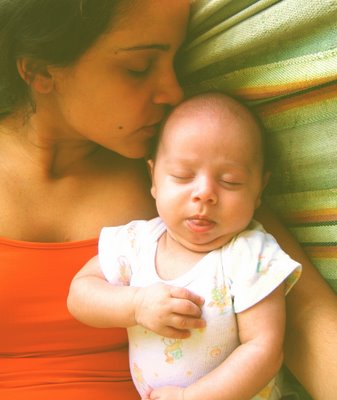If you could peek inside a baby's brain while she's being held, while her mother rocks her, sings to her or plays a game of peek-a-boo, you would see split-second miracles.
You would see neurotransmitters firing, synapses forming, chemicals sending messages of love and warmth. You would see language developing, sounds and words burning imprints on the baby's memory.
You would see, as a group of Wichita business leaders did Friday, how fast it all happens. And you would realize how simple moments -- the relationships between tiny children and caring adults -- can change everything.
"As a culture, we are failing our children," said Bruce Perry, one of the world's leading authorities on childhood trauma.
"We know more about children than ever before. We know how the brain develops. We know what's good for them.... And yet we live in a child-illiterate society. We're not able to take those isolated factoids and weave them into policies that really matter."
Perry, senior fellow of the Houston-based ChildTrauma Academy, spoke to a lunchtime gathering of about 50 prominent leaders brought together by the Kansas Health Foundation.
The foundation recently launched a campaign to make Kansas the best state to raise a child by 2020 -- a goal officials say can be achieved only if we revolutionize the way we view and fund early childhood.
In a presentation illustrated by plenty of statistics and a few dramatic images of children in crisis, Perry showed what can happen when young children don't get the care and interaction they need.
Simply put, their brains don't develop. Medical scans show huge gaps where brain matter should be -- gaps that can never be repaired.
We try to fix it, Perry said. We pour billions of dollars into programs like special education, mental health, drug abuse prevention and jails. But if research shows that more than 80 percent of a person's brain is formed before his fourth birthday, "that's a little bit like changing the carpeting in a skyscraper," Perry said.
Much of Perry's work -- and his book, "The Boy Who Was Raised As a Dog: What Traumatized Children Can Teach Us About Loss, Love and Healing" -- focuses on the importance of relationships during a child's early years.
He noted that the average 12-year-old in today's society, where privacy fences and televisions have replaced tribal communities and storytelling, "has the world view and social/relational skills of a 4-year-old."
What can we do? That's the question Marni Vliet, president of the Kansas Health Foundation, posed to the local group Friday.
Businessman Barry Downing, the force behind The Opportunity Project, an early education program for children living in poverty, said the answer is simple.
"We need to get the word to Topeka... to shine the spotlight on this particular area," he said. "It's as simple as that."
Ideas proposed over the 90-minute lunch meeting included:
- Developing a long-range plan for early childhood, similar to the state's plan for highway repair and construction.
- Demonstrating how investments in early childhood benefit all taxpayers, not just children and parents.
- Making Perry's presentation -- or other information on early brain development -- part of job training in local workplaces.
- Encouraging employer-funded parenting classes for workers.
- Cataloging local early-childhood groups, services and other resources for parents and caregivers.
Perry urged the local leaders to learn more about brain research but, more importantly, to act.
"We need to reinvent the way we live today," he said. "There are lots of places where they're doing great, creative things, so we know it can be done."
Source: The Wichita Eagle
Also see: The Con of Controlled CryingDr. Bruce Perry and the Developing Mind
The Wellsprings of Horror in the Cradle
An open letter to all responsible politicians from Alice Miller


No comments:
Post a Comment